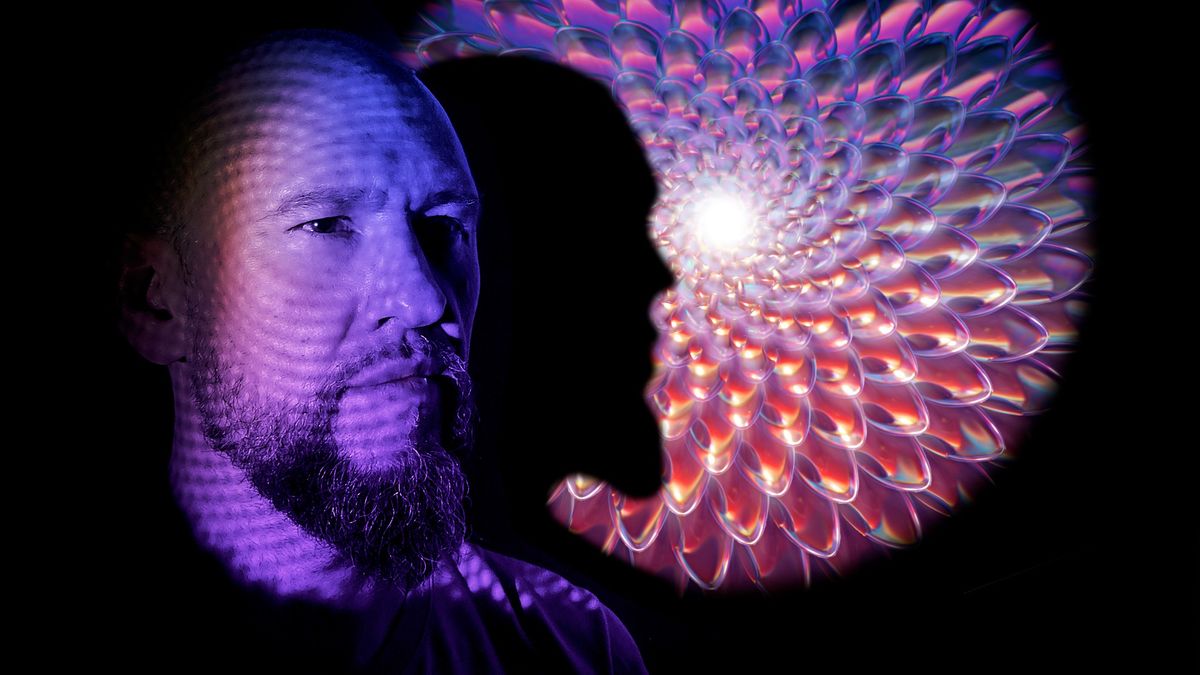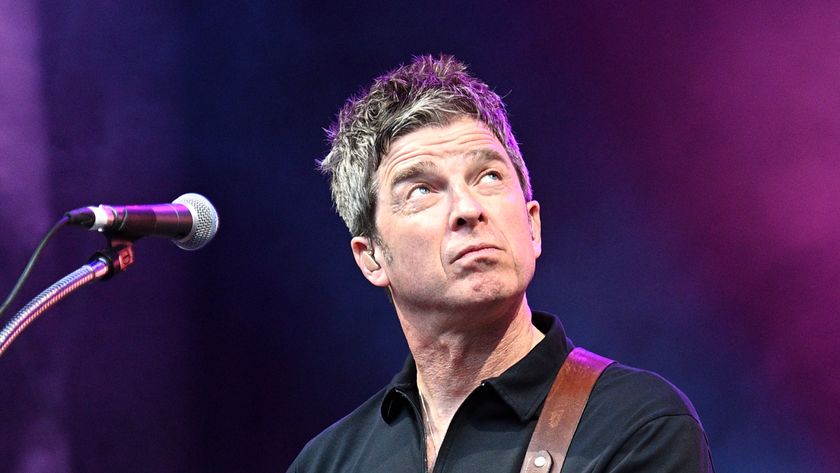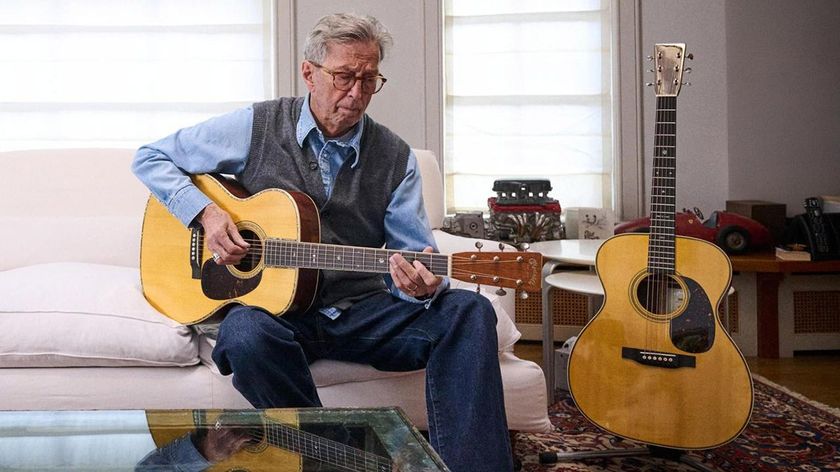Tom Middleton's top 10 tips for a better night's sleep
The DJ and techno pioneer's cutting edge work into the science of sleep is here to give you your best night's rest yet

Techno pioneer Tom Middleton takes sound and science seriously. And when it comes to the science of sleep there's no-one more passionate and better placed to help you drift off with millions of people using his audio releases and music for apps such as Calm and Sleep Cycle every single night.

Tom Middleton: "We all need to sleep better. If you get it right all the other systems work."
We chatted with Tom to talk about his latest project Spatial Sleep Music here and during our conversation the talk turned to the perfect way to get a decent night's sleep.
With so many of us musicians too often burning the candles at mulitple ends, please allow us to present Tom's personal 'Top Ten Tips' for getting some well-deserved, musically-recharging, mind and body-repairing shut-eye.
Night night...
Tom Middleton’s Top 10 Sleep Tips
The Problem: Our world is experiencing prolonged periods of chronic stress, resulting in mental and emotional health issues, with anxiety, stress, burnout, depression, and sleep loss at crisis levels. This is being triggered by uncertainty, scarcity, fear, disconnection, isolation and worry.
It’s an evolutionary response to potential danger, known as the fight-or-flight nervous system response which elevates us into a constant state of hyper-vigilance. But many of us have been in this state for two years or more.
The Solution: Sleep is the foundational pillar of mental, physical, and emotional health and wellbeing. We spend a third of our lives sleeping, and it’s an evolutionary adaptation to naturally reset the mind, allowing our brains to recover, repair, and rebuild our bodies whilst boosting the immune system and help us fight off disease. It’s known as the best free life insurance policy. So taking sleep seriously should be a priority.
Get the MusicRadar Newsletter
Want all the hottest music and gear news, reviews, deals, features and more, direct to your inbox? Sign up here.
Here are some take home sleep hygiene tips that may be useful. Try my sleep inducing music. Don’t take my word for it – millions are using it every night with content I’ve made for apps like Calm and Sleep Cycle.
1. Routine
Establish a consistent wake time, aim for at least 7.5 hours and base sleep time on this. Each person has different sleep needs depending on their chronotype.
2: Daylight
Walk outside in daylight (no shades!) for 20 mins in the morning which is crucial to reset the body clock.
3: Movement
Take standing breaks if you sit a lot. Note, it’s possibly unwise to exercise too close to bedtime as you may be pumped and too excited to sleep. However, bedroom gymnastics is encouraged! An “O” (or more!) before bed is the best natural hormone cocktail sedative.
4: Diet and nutrition
Eat light at night, two to three hours before bedtime. Be aware that spicy food may stimulate and energise. Magnesium, Gaba and 5HTP may help support sleep. Anything with Trytophan which is a precursor of Serotonin and then into Melatonin which is essential for sleep regulation. Aim for 8 to 10 glasses of water a day.
Caffeine: Avoid after 12pm, since it takes 12 hours to leave the body and is the worst sleep disruptor.
Alcohol: Ruins sleep quality, blocks REM sleep for memory, mood, and crucial emotional first aid, meaning you’ll never wake up feeling refreshed.
5: Sleep environment
Remove tech and clutter, and replace them with oxygen-emitting plants. Invest in good-quality bedding. The bedroom is for sleeping and intimacy, it is not an office, dining room, or cinema!
6: Sleep kit
Buy an eye mask, earplugs to reduce noise (custom fitted ones are best such as ACS Sleep Sounds - best £90 you’ll ever invest in your sleep I guarantee!) Nasal strips can reduce snoring and help you achieve a deeper sleep. Also a stamp sized piece of surgical tape over the lips can train them to remain closed and encourage nasal breathing.
7: Light and temperature
Avoid bright, white light, which blocks melatonin. Red, orange, or soft lights are ideal. Set them to fade down and switch off. Use low-level orange/red lights for night trips to the bathroom. Himalayan salt crystal lamps are a good option. Keep the room cool, at around 18 degrees (65 Fahrenheit). Ventilate for 20 minutes or leave the window open a little if comfortable.
8: Digital detox and dopamine fasting
The “blue light” from screens blocks melatonin, so avoid scrolling, swiping, and toxic screen addiction for at least an hour before bed.
9: Empty mind = happy head
Avoid arguments at night, write down to symbolically 'remove' negative thoughts and worries, then throw them away. Then write down a to-do list. Then focus on 3 things you're grateful for and smile. This grounds you in the present moment as you’re not ruminating on the past or future. Then listen to relaxing music such as Sleep Better, Sleep Cycle, Spatial Sleep Music or my sleep music for Calm.
10: Breathwork
Try 4x4 ‘box breathing’ or 4, 7, 8 breathwork patterns. Inhaling slowly through the nose, being aware of deeply filling the belly, holding the breath, then exhaling out of the mouth. If these are too complex, the key is bringing your awareness to your breath, deep slow diaphragmatic nasal breathing and a longer exhale.
Tom's albums Sleep Better and Spatial Sleep Music are available on streaming platforms now. While the Calm and Sleep Cycle apps can be found on your favourite app store.
And find out more about Tom's work here.


Daniel Griffiths is a veteran journalist who has worked on some of the biggest entertainment, tech and home brands in the world. He's interviewed countless big names, and covered countless new releases in the fields of music, videogames, movies, tech, gadgets, home improvement, self build, interiors and garden design. He’s the ex-Editor of Future Music and ex-Group Editor-in-Chief of Electronic Musician, Guitarist, Guitar World, Computer Music and more. He renovates property and writes for MusicRadar.com.

“I didn’t even realise it had synthesizer on it for decades”: This deep dive into The Beatles' Here Comes The Sun reveals 4 Moog Modular parts that we’d never even noticed before

Is Sabrina Carpenter the world’s biggest Teenage Engineering fan? Please, please, please say that it’s true


![Chris Hayes [left] wears a purple checked shirt and plays his 1957 Stratocaster in the studio; Michael J. Fox tears it up onstage as Marty McFly in the 1985 blockbuster Back To The Future.](https://cdn.mos.cms.futurecdn.net/nWZUSbFAwA6EqQdruLmXXh-840-80.jpg)






